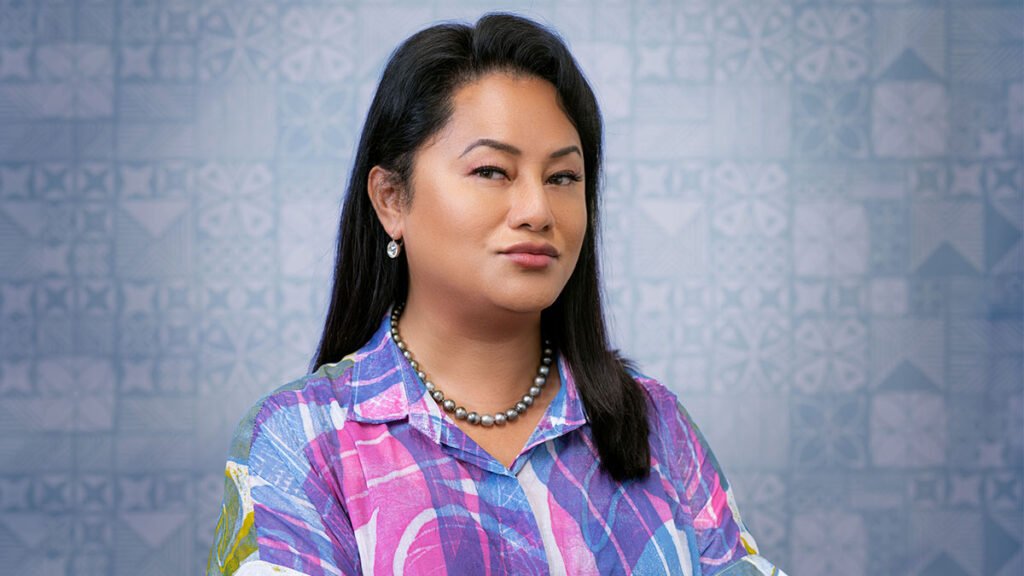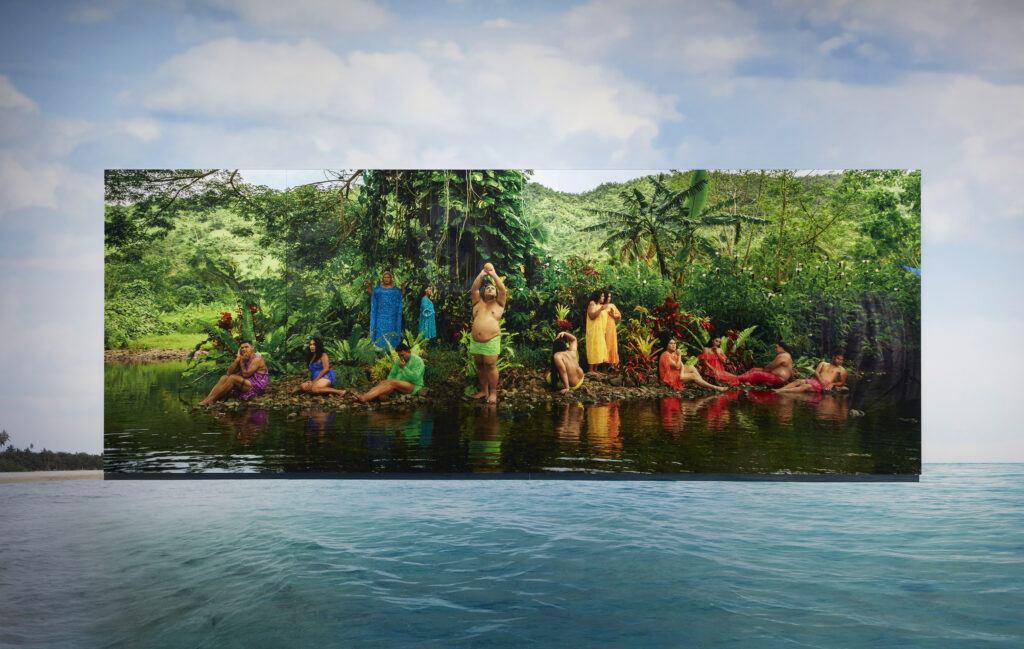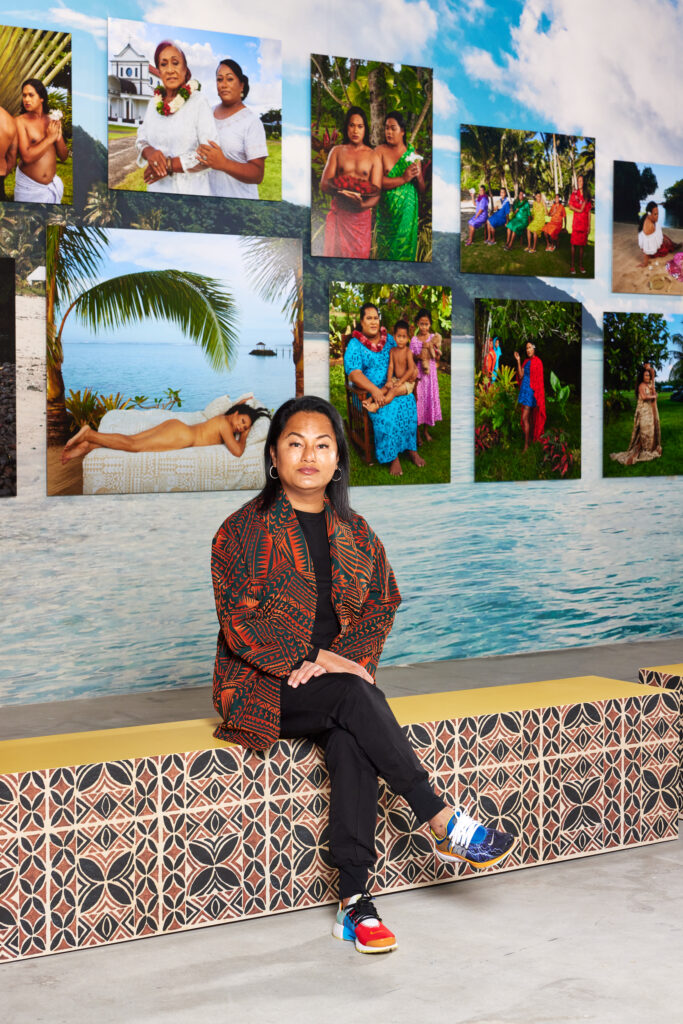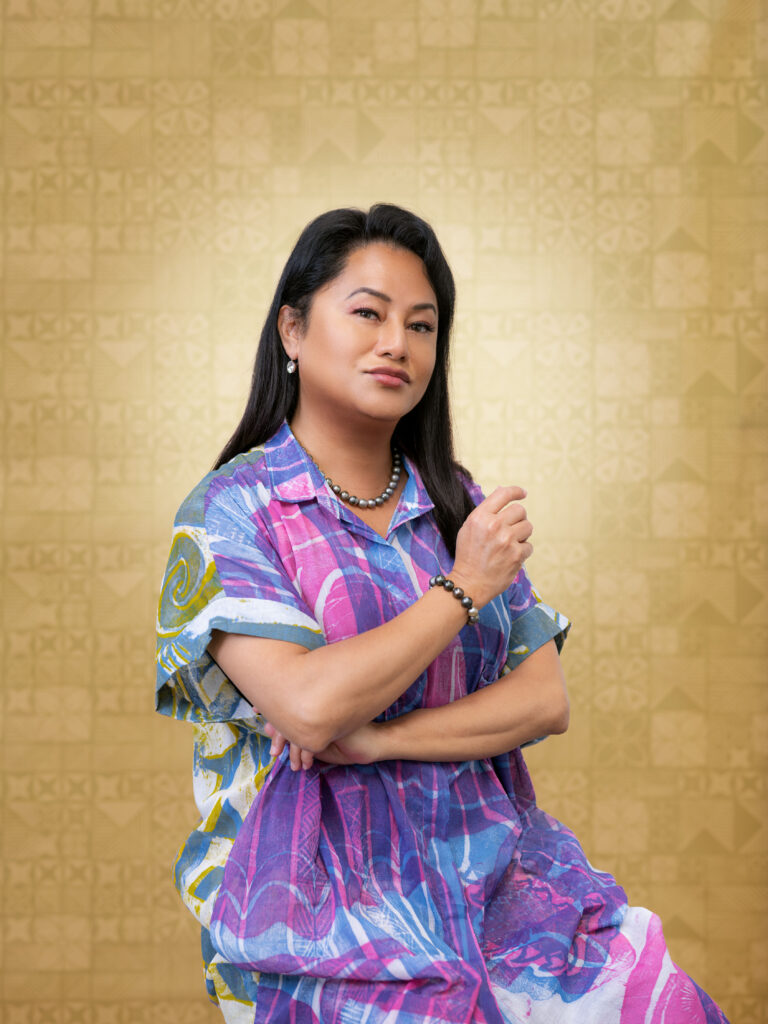
Cover Star Yuki Kihara Dishes on Culture, Decolonization, and Samoa as a Tourist Destination
A dual citizen of New Zealand and Samoa, interdisciplinary artist Yuki Kihara, is Vacationer Magazine’s cover star for May. If you don’t know about her new art installation, you should consider checking out our in-depth article about Kihara and Paradise Camp, her art installation at Powerhouse Museum in Sydney, highlighting the Fa’afafine and Fa’afatama communities in Samoa.
We discussed a variety of topics and covered a lot of ground, but wanted to share more of our conversation about whether Samoa is an ideal tourist destination for LGBTQ+ travelers and how colonization has affected the third and fourth-gender communities in Samoa.

Vacationer Magazine: Do you think colonization led to the marginalization of the Fa’afafine community or do you think the Fa’afafine community is recognized and an integrated part of the larger Samoan community?
Yuki Kihara: It’s actually pretty mixed. For example, the Samoan government established a Law Reform Commission in order to revise some of the laws that were introduced during the colonial era. One of these laws they were directly targeting the fa’afafine community. It’s two laws through the Crime Ordinance Act of 1961 which were imposed by the New Zealand Colonial Government. The first one was the ban on female impersonation by any men in public and the other was homosexuality. So, anyone caught breaking these laws was fined and imprisoned for up to six months.
However, we’re thankful for the efforts of three Fa’afafine lawyers, who advocated for the abolishment of these laws. The Samoan government agreed to abolish the female impersonation law; however, homosexuality is still illegal. So this is something the Samoa Fa’afafine Association, which is a Fa’afafine LGBTQIA+ human rights organization currently working to address this law. Although it’s not imposed, any government can try to enforce it.
That’s great you have community support to overturn and rectify some of these measures that seem to directly affect the LGBTQ+ community. Just out of curiosity, do most indigenous cultures embrace nonbinary and queer people?
Generally, we, indigenous cultures, see sexuality and gender as something fluid. So, just imagine a pie chart with different shades of gray – so, that’s the indigenous view.
But the indigenous view in Samoa has been tampered with by organized religions such as Christian missionaries and evangelical missionaries during two colonialisms – Germany from 1900 to 1914 and the New Zealand Colonial Administration from 1914-1962. These foreign forces imposed the Western binary gender systems which conflicts with our indigenous values that’s what we are currently working towards decolonizing as we speak.

The Samoa Fa’afafine Association is a strong proponent of that, correct? The organization not only provides community visibility, but it’s also responsible for the annual Miss Samoa Fa’afafine Pageant, too.
Yes, there is a Fa’afafine beauty pageant that happens every year in December, which brings together the fa’afafine community to celebrate the resilience of the fa’afafine community through pageantry. This fa’afafine beauty pageant is actually really well supported by local businesses, including businesses that are run by cisgender heterosexual Samoans.
So, I’m not saying that Samoa is a perfect place for LGBTQIA+ people, but there is a level of tolerance, but we don’t want tolerance, right? We’re not asking for acceptance either. We’re just asking for human rights, equity, and to be treated like everyone else.
I wouldn’t say that queer tourism in Samoa is something to be avoided. That’s not what I’m saying. For example, the public show of affection generally in Samoan culture is not something we do. People don’t hold hands, people don’t French kiss, and the only time we kiss is when we kiss each other’s cheek in public to greet each other or we shake everybody’s hands. That’s the kind of greeting or affection that we show in public. This is not oppressive in any way because it’s something that cisgender heterosexuals do as well… and it’s what we do in the fa’afafina community. It’s a cultural thing.

So, if I’m a traveler and I want to experience the Fa’afafine community firsthand, are there specific places in Samoa or beyond that you’d recommend curious travelers check out, see or do?
Certainly come to Samoa but know that there are limitations. Like anywhere, you have to respect the culture. If you are the kind of traveler that is interested in going to places where it’s not corporatized, then Samoa is the place for you. We have one McDonald’s on the island, and I think that is enough.
Samoa is not a monolith. I guess when I say that it’s often seen as a paradise – it is a paradise and I love living there – but there’s another side to the story. I think that with any traveler being respectful of the values and the culture of the place is important. I find Samoa to be a relatively safe place for LGBTQIA+ people as long as you can respect the customs and traditions of the place.
Click here to learn more about Yuki Kihara and the genesis of her incredible art exhibition, Paradise Camp.




